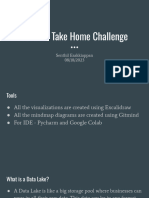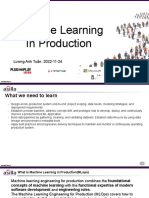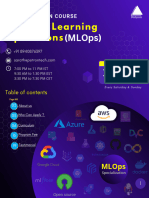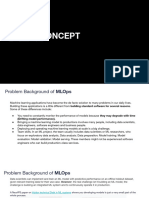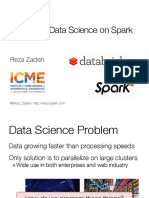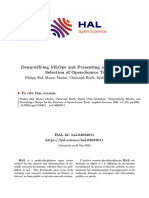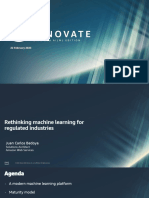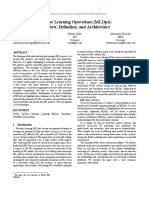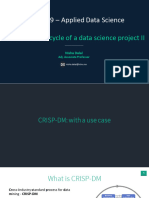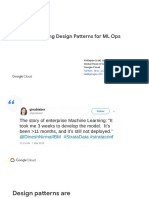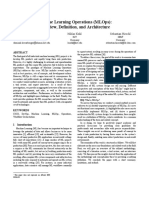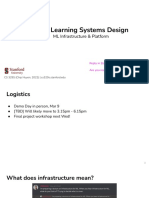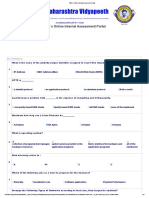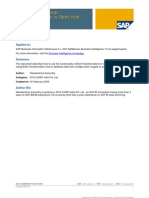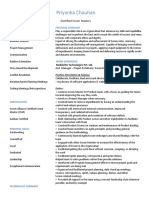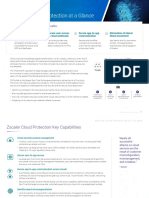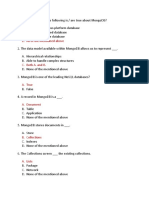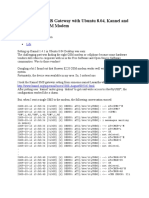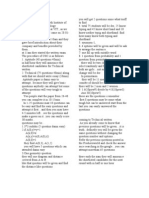0% found this document useful (0 votes)
48 views21 pagesMLOps
This document discusses MLOps and how to operate a machine learning system productively. It covers topics like source control, CI/CD tools, feature stores, data and ML pipelines, model registries, metadata stores, and performance monitoring, which are important components of MLOps.
Uploaded by
project111995Copyright
© © All Rights Reserved
We take content rights seriously. If you suspect this is your content, claim it here.
Available Formats
Download as PDF, TXT or read online on Scribd
0% found this document useful (0 votes)
48 views21 pagesMLOps
This document discusses MLOps and how to operate a machine learning system productively. It covers topics like source control, CI/CD tools, feature stores, data and ML pipelines, model registries, metadata stores, and performance monitoring, which are important components of MLOps.
Uploaded by
project111995Copyright
© © All Rights Reserved
We take content rights seriously. If you suspect this is your content, claim it here.
Available Formats
Download as PDF, TXT or read online on Scribd
/ 21




